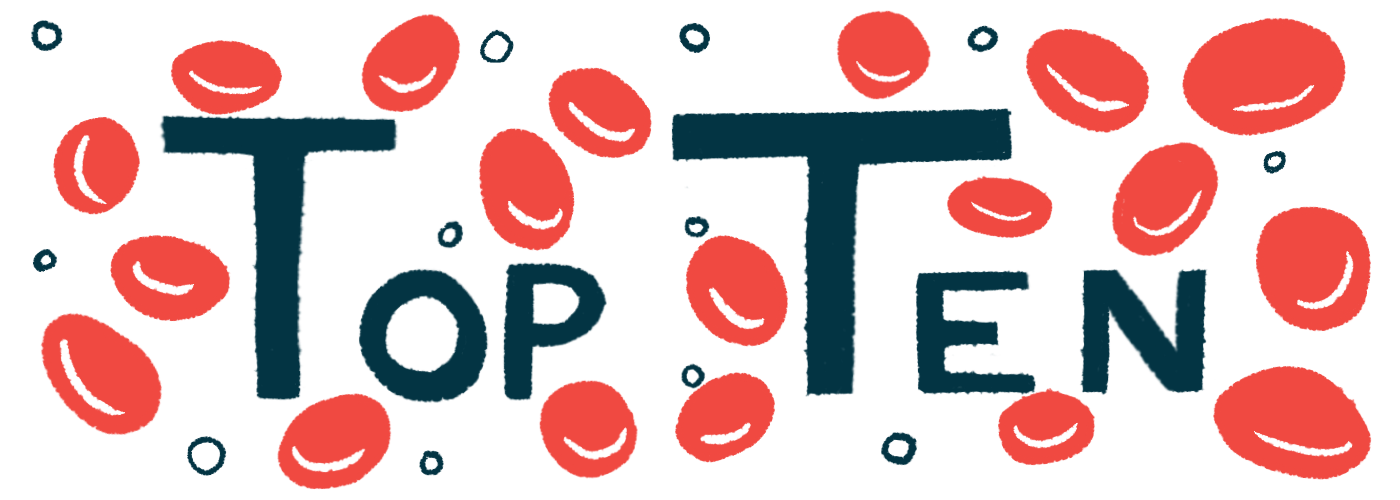Top 10 hemophilia stories of 2024
Clinical trials, research studies among hot topics last year
Written by |

In 2024, Hemophilia News Today provided readers with up-to-date coverage on research, treatments, and clinical trials for hemophilia. We compiled the top 10 most-read stories of the year, each with a brief summary. As we enter 2025, we look forward to continuing to support the hemophilia community. We wish everyone a happy new year!
No. 10 — Chinese biotech trials gene therapy for hemophilia A
Belief BioMed began the year dosing the first patient in a Phase 1/2/3 clinical trial for BBM-H803, a one-time gene therapy for hemophilia A. BBM-H803 uses a harmless virus to deliver genetic instructions that liver cells can use to produce factor VIII (FVIII), the clotting protein that is faulty or missing in hemophilia A. This is expected to prevent excessive bleeding, a hallmark of hemophilia. The clinical trial, running in China, is testing how safe BBM-H803 is and how well it works over a year after a single infusion in adults.
No. 9 — Novo Nordisk’s Mim8 reduces bleeds in hemophilia A
Mim8, an experimental antibody-based therapy being developed by Novo Nordisk, reduced the number of bleeding episodes more than did standard treatments in adults and adolescents with hemophilia A, including those with inhibitors, in a pivotal Phase 3 clinical trial. Inhibitors are neutralizing antibodies that may render standard FVIII replacement treatments less effective. Mim8 is designed to bypass the need for FVIII by mimicking its function. The company was planning to submit Mim8 for regulatory approval by the end of the year.
No. 8 — Intellia cuts partnership with Regeneron for hemophilia B
Intellia Therapeutics put an end to its partnership with Regeneron to develop gene-editing candidates for hemophilia B, a decision that came after the U.S. Food and Drug Administration (FDA) cleared their first clinical trial. The two companies planned to keep working together on their program for hemophilia A. Regeneron will develop treatments for hemophilia B on its own.
No. 7 — Switching to Jivi means fewer bleeding episodes for hemophilia A patients
Switching from Kovaltry (octocog alfa) to Jivi (damoctocog alfa pegol) may help adults and children with hemophilia A experience fewer bleeding episodes, according to a Canadian study. Kovaltry and Jivi, both marketed by Bayer, work as a regular supply of FVIII to help the blood to clot and prevent excessive bleeding. But as an extended half-life replacement treatment, Jivi is designed to last longer in the blood. As a result, patients can receive treatment less frequently while still benefiting from its effects.
No. 6 — Pfizer announces launch of Beqvez for hemophilia B in the US
Pfizer announced the rollout of Beqvez (fidanacogene elaparvovec-dzkt), its one-time gene therapy for adults with moderate to severe hemophilia B, after receiving regulatory approval in April. The therapy costs $3.5 million, the same as Hemgenix (etranacogene dezaparvovec), another approved gene therapy for hemophilia B. Beqvez delivers a healthy copy of the F9 gene to liver cells, which use it to produce factor IX (FIX), the clotting protein that is faulty or missing in hemophilia B. It was the second gene therapy to gain approval in the U.S. for hemophilia B.
No. 5 — Florida hospital starts dosing Hemgenix
Tampa General Hospital was the first in Florida and third in the U.S. to administer Hemgenix, the first one-time gene therapy to be approved for adults with hemophilia B in the U.S. Marketed by CSL Behring, Hemgenix delivers genetic instructions that liver cells use to produce FIX. This can reduce or eliminate the need for regular replacement treatment in people with hemophilia B.
No. 4 — Sanofi’s fitusiran under review by the FDA
In June, the FDA agreed to review an application requesting the approval of fitusiran, a therapy for adults and adolescents with hemophilia A or B, including those with inhibitors. Developed by Sanofi, fitusiran is an under-the-skin injection therapy that reduces the levels of antithrombin, a protein that limits blood clotting. In Phase 3 clinical testing, it was found to reduce the risk of bleeding. A decision on its approval is expected by the end of March.
No. 3 — First patient receives Roctavian outside clinical trials
A man identified as Maxwell became the first patient in the U.S. to receive Roctavian (valoctocogene roxaparvovec-rvox), a one-time gene therapy for hemophilia A, outside clinical trials. Approved in June 2023, BioMarin Pharmaceutical’s gene therapy delivers instructions to help the body produce FVIII, reducing the need for regular treatments. Maxwell received the infusion at the Center for Inherited Blood Disorders in Southern California.
No. 2 — Roctavian nearly zeroes out bleeding rates
A single dose of Roctavian reduced bleeding rates by up to 96% over seven years in adults with hemophilia A participating in a Phase 1/2 clinical trial that tested how safe and effective the gene therapy is, showing how it can be a long-lasting option to prevent bleeding episodes and reduce the need for regular replacement treatment.
No. 1 — FDA clears first trial of CRISPR therapy for hemophilia B
In February, the FDA cleared a Phase 1 clinical trial that Intellia and Regeneron were planning to conduct to test a gene-editing therapy candidate born out of their partnership. Their candidate, for hemophilia B, used the CRISPR/Cas9 technology. Although the partnership between the two companies later ended, Regeneron committed to continue advancing the clinical program on its own.
***
We hope our stories in 2024 have been helpful, and wish everyone a happy new year!


